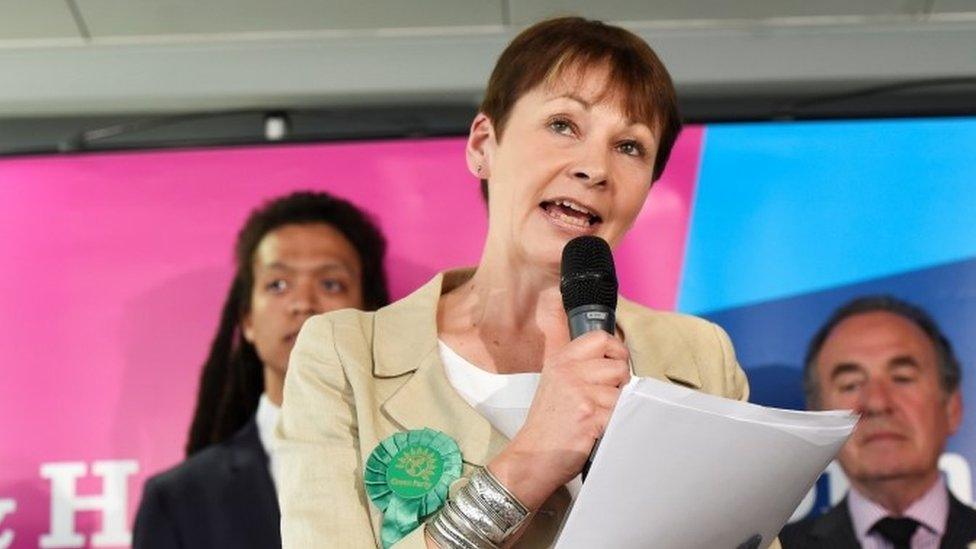Greens will stick up for 'the little guy' says co-leader
- Published
- comments
Greens told to look on the bright side after disappointing election
The Green Party will stick up for the "little guy" as they fight for a fairer economic system, co-leader Jonathan Bartley has told activists.
He told its conference he wanted more public input into funding of services, locally controlled energy schemes and bank investment in "community bonds".
While his party had "suffered" at the hands of the two-party system, he said Green ideas were now "common currency".
It "will be the most influential" party in 21st Century politics, he added.
In June's election, the Green Party of England and Wales saw their vote share fall as 82% of voters backed the Conservatives or Labour. It got 1.6% of the vote, down on 3.8% in 2015, as it failed to make hoped-for breakthroughs in target seats in Bristol, Norwich and Oxford.
Nevertheless, Mr Bartley said the Greens had succeeded in setting the political agenda by making the case for the introduction of the Living Wage and keeping climate change high up the agenda.
"At times, it might not feel like we are winning but where we lead, others follow. Our London Assembly members forced a Living Wage. Our MEPs stood up for refugees when others stood back. And in Parliament, we have consistently kept climate change on the agenda," he told the annual gathering.
"And you know what. I believe we will be the most influential party in 21st Century politics."
Outlining the Green vision for a new economy, he re-iterated his party's call for a guaranteed universal basic income, for Universal Credit to be scrapped and called for banks to invest in "the kinds of bonds and shares and trusts that hold communities together".
His party, he argued, believed in everyone having an economic stake in society, through community-owned energy suppliers and "participatory budgeting" of local services.

Morale boost
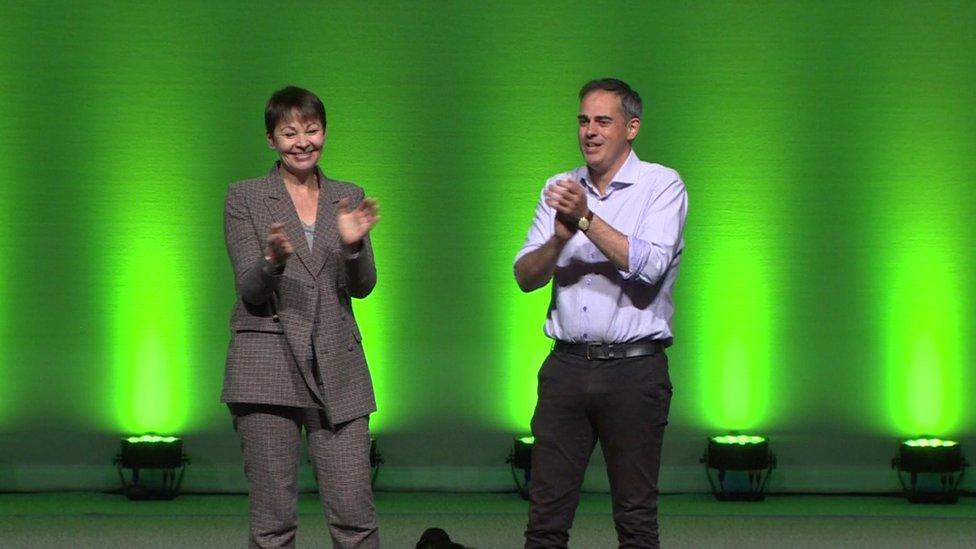
Analysis by BBC political correspondent Leila Nathoo
At a meat-free conference in the pretty surrounds of Harrogate, Green Party members have been digesting their disappointing election result in June, when they polled around 525,000 votes - half their previous tally.
But while the mood among the few hundred delegates gathered in Yorkshire is reflective - it's certainly not despondent. Yes, party members admit the snap election caught them off guard and they were squeezed by Jeremy Corbyn's resurgent Labour party, whose agenda encroached on territory previously claimed by the Greens.
And there has been considerable debate about whether the party was right to stand aside 22 candidates in marginal seats to give Labour or the Lib Dems a clear run at trying to beat the Tories.
One of those candidates told me she thought Green voters should have been able to choose the party they wanted to, and thought anyone prone to making tactical choices would have done so anyway.
Another described the decision as "surrender" - seeing as there was no real payback by Labour or the Lib Dems by coming out strongly for electoral reform.
There are others though (including the leadership) who believe the Hung Parliament was, in part, a consequence of the Greens not fielding candidates in certain seats - and that it demonstrated a spirit of co-operation among parties. But generally across the conference, there is a sense of optimism that the Greens do still have a place and a role.
"Speaking truth to power" was the slogan of co-leader Jonathan Bartley's speech. On issues such as tackling climate change, he said the Greens' "voice of truth" had never been more important.
And there was his commitment to a second Brexit referendum on the final deal agreed with Brussels, a passionate defence of free movement of people and a claim that Britain's future was better in the EU.
But the party also wanted to make a case for a new economy - a Green economy - with people and the environment at its heart. This was a morale boosting address - to rally the troops and reassure them the Greens are still relevant.

"Other parties might flirt with changing the economy. Or the welfare system. But we are the only party that is honest about how much things need to change."
He added: "The Green Party is the party of small business, of creators, givers, sharers and contributors. Of the little guy. The social entrepreneur. The activist. The creative coder and the brave builders. The party for anyone who has a dream. For everyone that wants an economy working for them, not against them."
Also speaking at Harrogate, Ms Lucas said her party had helped "define the general election story" by being brave enough not to field candidates in seats where other "progressive" parties had a better chance of winning. The tactical alliances were criticised by some party members after Labour and the Lib Dems largely decided not to reciprocate.
Ms Lucas said "progressive votes would continue to be wasted" until the UK adopted a proportional voting system but, defending her party's choices, she said it had "lived its values" by embracing "pluralistic co-operation" rather than tribalism.
She told activists the Greens would always be "an insurgent force for good" that would "ask the big questions that other parties would not".
On the third day of the party's conference, members backed an idea for a new bank holiday to celebrate the contribution of migrants to British society.
- Published7 October 2017
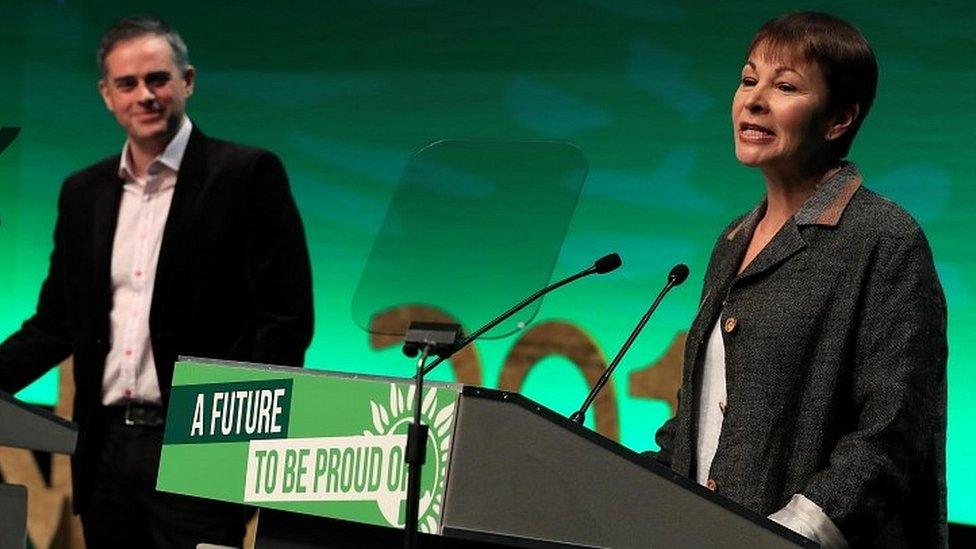
- Published24 October 2017
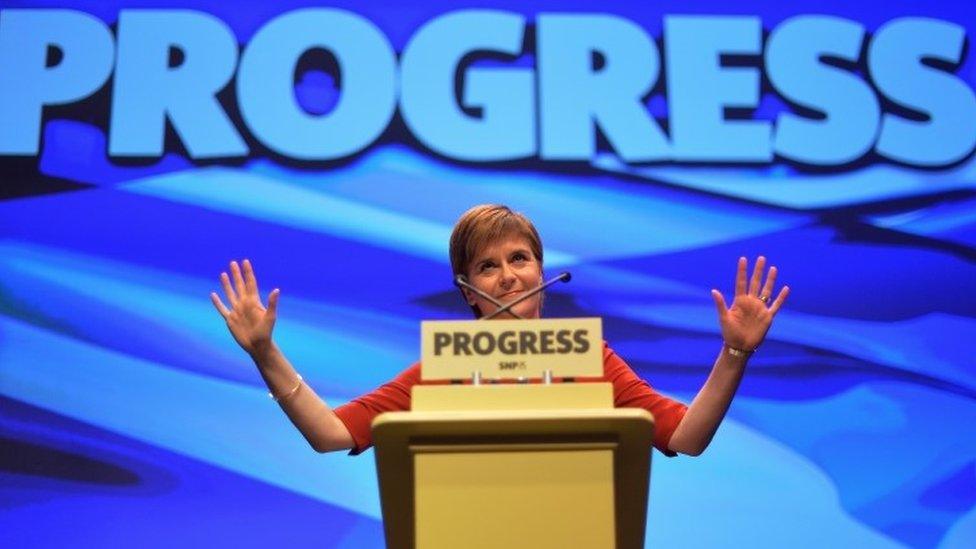
- Published27 July 2017
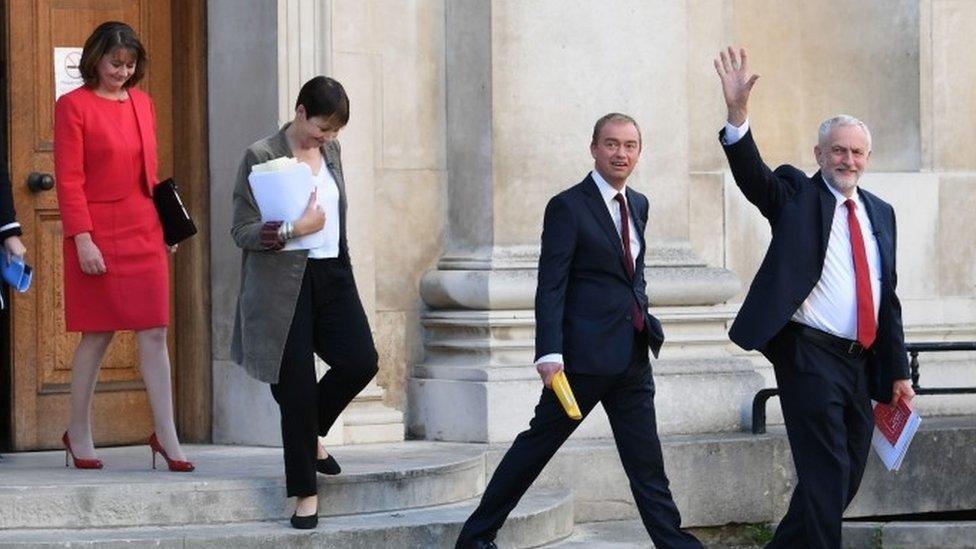
- Published9 June 2017
